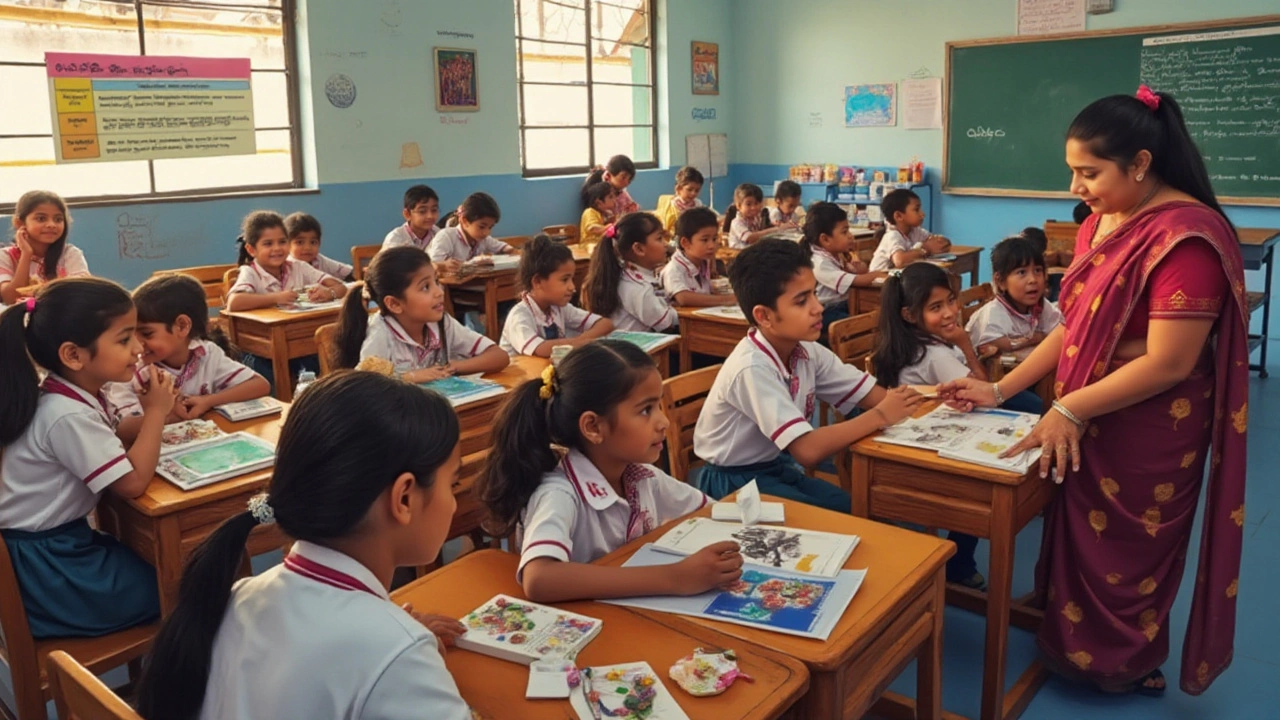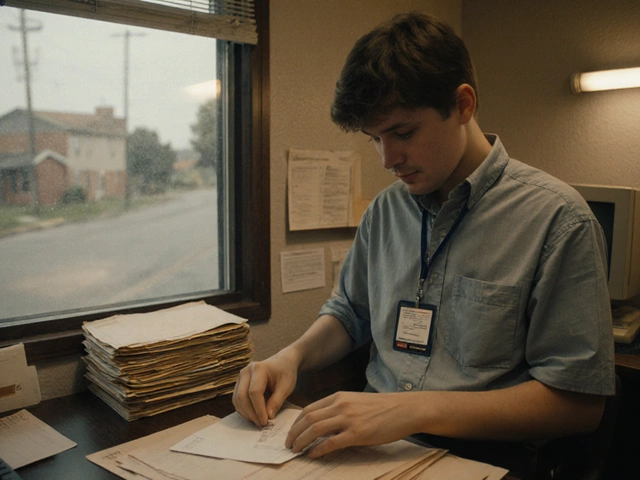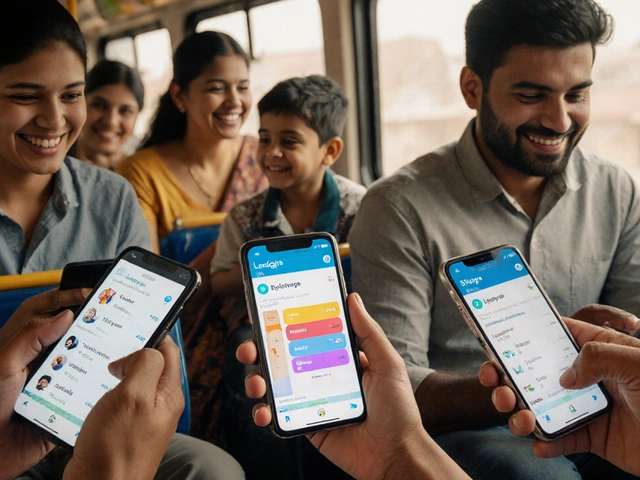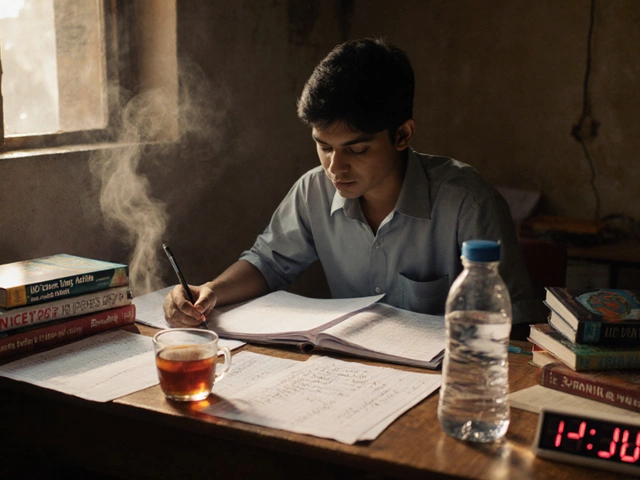The Central Board of Secondary Education (CBSE) has long been a cornerstone of India's educational landscape, offering a diverse range of academic paths for students across the country. Selecting the ideal syllabus under CBSE's umbrella can be a crucial decision, one that shapes future learning experiences and career prospects.
In this article, we will explore the foundational elements of the CBSE curriculum, comparing traditional and modern syllabi options. We'll examine how these choices can align with a student's unique passions and strengths, offering practical tips to help parents and students make well-informed decisions about their educational paths.
- Understanding the CBSE Curriculum
- Traditional vs. Modern Syllabi
- Choosing Based on Student Interest
- Tips for Navigating Syllabus Decisions
Understanding the CBSE Curriculum
The CBSE syllabus is a comprehensive framework designed to facilitate holistic education across various subjects. Its pivotal role lies in offering a curriculum that caters to the national educational standards while leaving room for creativity and critical thinking. The CBSE curriculum prioritizes a balance between theoretical knowledge and practical skills, which is essential in nurturing well-rounded individuals. Interestingly, CBSE employs a continuous and comprehensive evaluation (CCE) method that goes beyond traditional rote learning. This approach ensures a focus on a student’s all-round development where periodic testing and project work encourage students to apply theoretical concepts in real-world scenarios.
A notable feature of the CBSE curriculum is its ability to adapt and integrate modern educational demands. With increasing globalization, CBSE includes contemporary subjects like Information Technology and Environmental Science, making education relevant to the current global context. This approach widens students’ horizons and equips them with tools to tackle contemporary challenges. As educationist E.C. Sachar once stated,
"The best curriculum is one that not only imparts knowledge but also ignites curiosity and critical thinking."
The CBSE curriculum is known for its diversity in academic tracks to cater to various interests and career pathways. Students have the flexibility to choose from streams such as Science, Commerce, and Humanities after the completion of class 10. This selection allows learners to specialize in areas that reflect their passion and career interests, fostering a conducive environment for personal and professional growth. It's worth noting that CBSE's influence extends beyond India, as many international schools also adopt this syllabus. A testament to its global acceptance, this curriculum prepares students for tertiary education opportunities worldwide. Understanding the structure and offering of the CBSE curriculum can help both students and parents align their educational goals with the needs of today's dynamic world.
The Importance of Standardization
The standardized nature of the CBSE curriculum ensures uniformity across the nation, offering a level playing field regardless of geographical location. This uniformity makes it easier for families who relocate frequently, guaranteeing that students experience continuity in their education. CBSE's rigorous content and assessment methods ensure that learners from different backgrounds have equal access to high-quality education. In its mission to support inclusive education, CBSE also dedicates resources to cater to differently-abled students, ensuring that educational equity is not just a concept but a practice implemented through tangible initiatives.
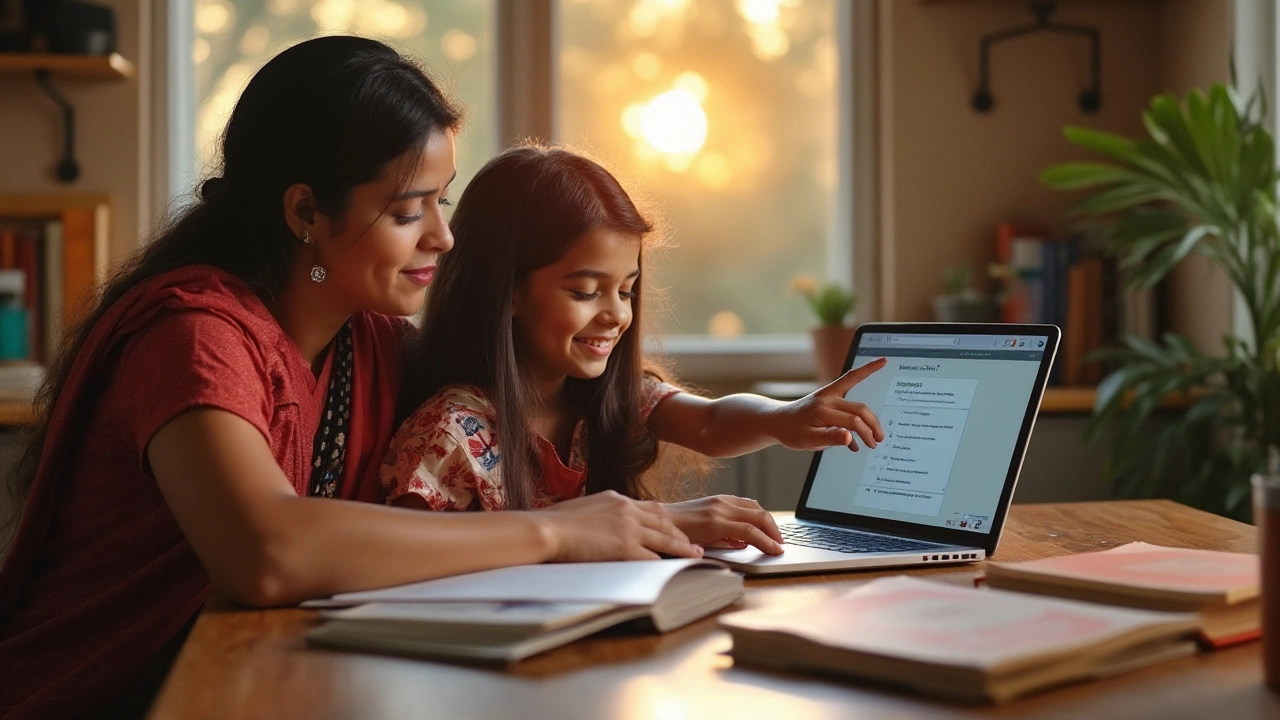
Traditional vs. Modern Syllabi
The choices between traditional and modern CBSE syllabus paths embody a crossroads in the educational journey for many students. Traditionally, the CBSE curriculum has emphasized a structured, examination-oriented approach, focusing on a uniform study of core subjects such as Mathematics, Science, and Languages. This classic pathway is renowned for its thoroughness, providing a strong foundation in fundamental academic principles. Advocates of this method often highlight how it instills discipline and a comprehensive understanding of essential concepts.
By contrast, modern syllabi options within the CBSE framework are infused with a blend of creativity and practical application. These contemporary pathways often encourage students to explore interdisciplinary subjects and embrace a more holistic form of learning. They include choices like Environmental Science, Entrepreneurship, and Humanities, often integrated with an emphasis on skills such as critical thinking and problem-solving. This kind of syllabus aims to equip students not just for tests, but for real-world challenges.
An interesting fact lies in the diversity modern syllabi offer. For example, CBSE's introduction of courses like Artificial Intelligence and Design Thinking reflects an active attempt to align learning with evolving global trends. In recent years, there has been a noticeable shift with an increasing number of schools incorporating these subjects into their elective lists, encouraging a more personalized and flexible academic experience.
"Education is not the learning of facts, but the training of the mind to think," said Albert Einstein, emphasizing the shift from rote learning to understanding and innovation.
The choice between traditional and modern syllabi is not simply a matter of preference but can significantly influence a student’s career trajectory. Traditional paths often align well with students aiming for fields that require deep subject knowledge, such as engineering and medicine, whereas modern syllabi can provide an edge for those leaning towards creative and digital industries. Ellen Stevenson, an education expert, points out that "The education landscape is broader now than it ever was, and the need for adaptability in curricula can't be overstated."
Critically, experts recommend that parents and students consider the individual learning style and interests of the student when choosing between the two. Schools frequently support this decision-making process by offering informational seminars and guidance sessions. As educational philosophies evolve, the lines between traditional and modern are increasingly blurred; many institutions offer integrated programs that attempt to capture the best of both worlds. This blending is evident in schools adopting project-based learning while maintaining rigorous testing standards.
Ultimately, the decision between adhering to a traditional or venturing into a modern CBSE syllabus should involve careful consideration of student goals and potential. The landscape of education, like a living organism, thrives on adaptation and change, reflecting the pressing needs of society and the future employment market. By making informed decisions, families can take advantage of the unique opportunities presented by both approaches within the CBSE educational spectrum.
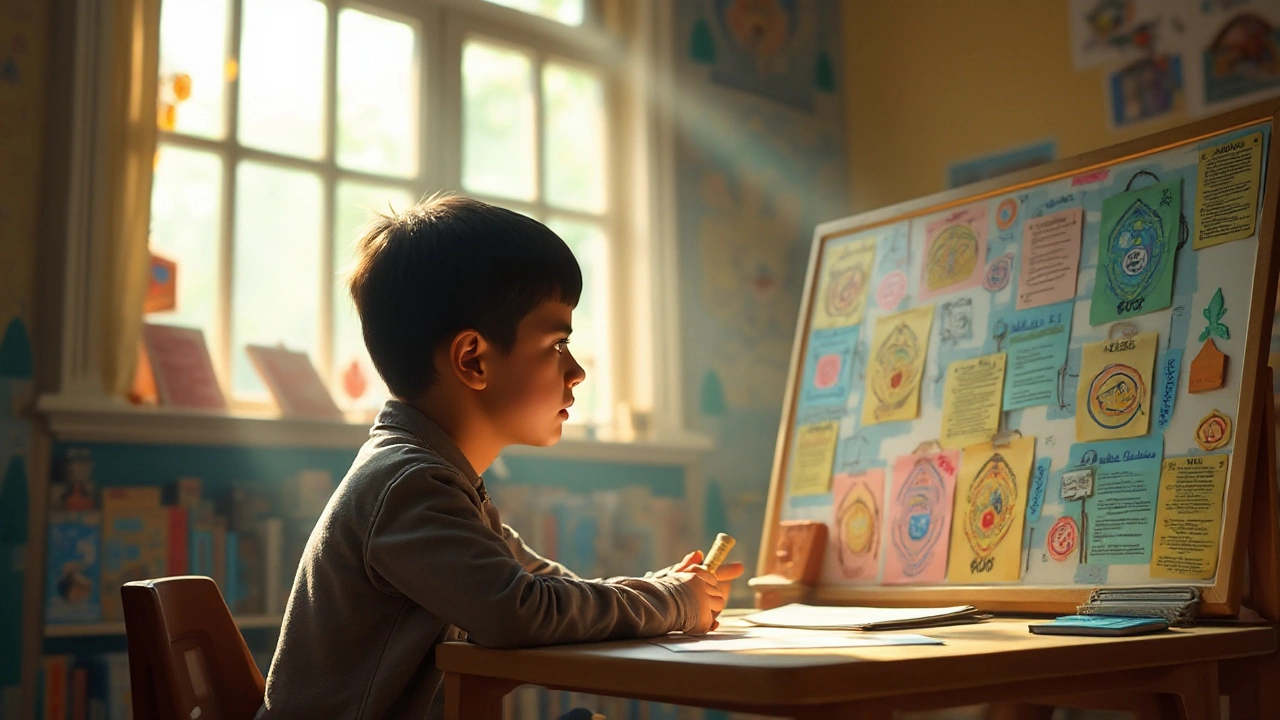
Choosing Based on Student Interest
When it comes to selecting the best CBSE syllabus for a student, tapping into personal interests and strengths is a game-changer. Many educators and psychologists agree that passion-driven learning not only enhances academic performance but also boosts emotional satisfaction and long-term retention of knowledge. For instance, a student who thrives in creative environments might find subjects like art or literature more engaging, while another with a knack for solving problems might excel in the sciences and mathematics. Recognizing and fostering these natural proclivities can lead to a more satisfying and successful educational journey.
There's a depth to understanding how interests intertwine with education. Consider a student enchanted by the intricacies of human history. For this child, an advanced syllabus with options like CBSE's History electives can be more appealing than a standard syllabus. This choice not only fuels their curiosity but prepares them for specialized higher education pursuits. The availability of such electives ensures that students do not feel shoehorned into generic paths and facilitates tailored teaching strategies that are regarded as highly effective. In the words of Ken Robinson, "The fact that human beings have a deep capacity for learning is not in question; the real question is why education systems often restrict what students can learn."
Often, a pivotal question arises for many parents and students: "What is the best route for my child given their interests?" To answer this, it's necessary to dig deeper than surface-level academic achievements. Creating a list of personal interests and hobbies, assessing hobbies like music, technology, or books, and aligning these with available CBSE electives can provide valuable clarity. Many school counselors suggest a trial approach—allowing students to explore tentative interests through introductory classes or clubs before committing to a full syllabus. This exploratory phase can lay the groundwork for making an informed choice that genuinely resonates with the student’s heart and mind.
| Interest | Recommended Subjects |
|---|---|
| Literature | English Core, Elective Literature |
| Sciences | Physics, Chemistry, Biology |
| Computing | Information Technology, Computer Science |
| Art | Fine Arts, Design |
It’s essential to remember that academic interests can evolve just like other facets of a young person’s life. A student interested in robotics today might find a passion for environmental science tomorrow. Thus, adopting a flexible mindset rooted in continual assessment can significantly impact the success of choosing the best CBSE syllabus. Ideally, schools and parents should create an environment where change is welcomed, and students feel at ease to redirect their educational journey as their interests and goals evolve.
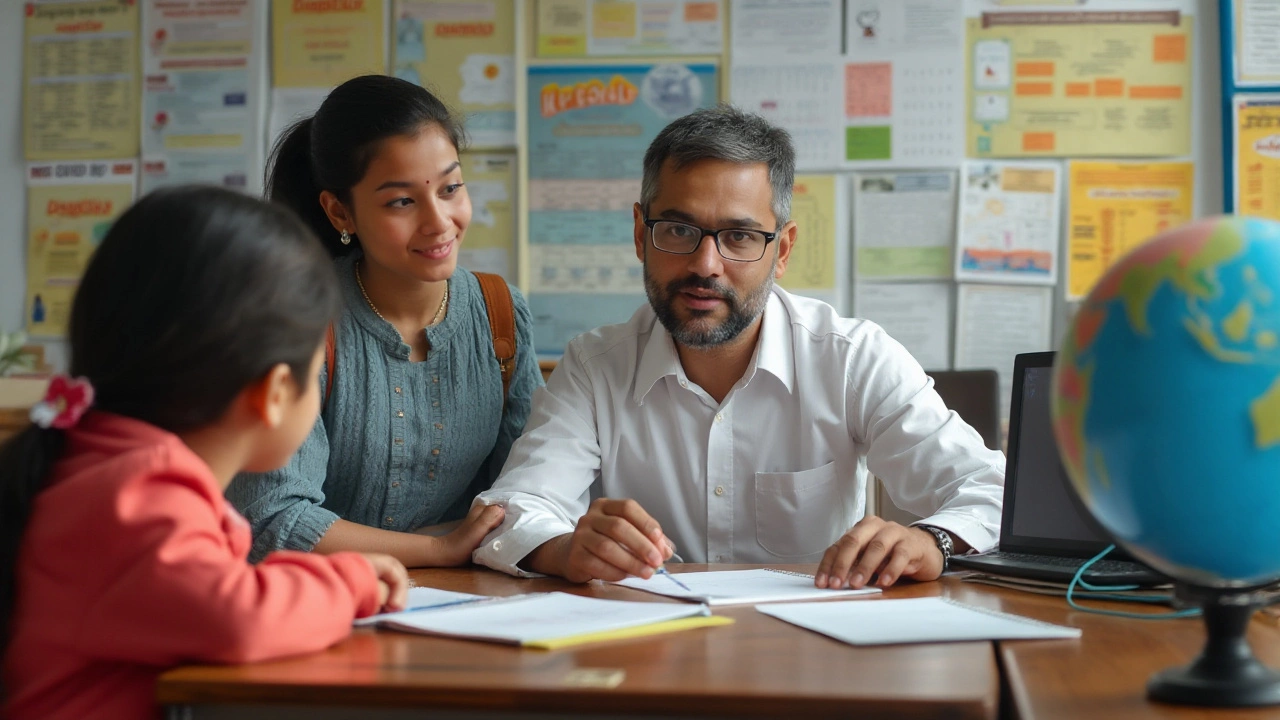
Tips for Navigating Syllabus Decisions
Deciding on the ideal CBSE syllabus can seem like a formidable task for many parents and students. It's not just about choosing subjects that are traditionally strong, but about aligning with the child's passions and academic inclinations. Start by evaluating the student's interests and natural abilities. This doesn't mean pushing them too early into a particular career lane but rather allowing them the room to explore where they feel most driven and adept. Students often flourish when they engage with material that piques their curiosity and challenges them suitably.
Consider future aspirations when choosing a syllabus. If a student expresses an interest in technology, a syllabus that includes computer science or advanced mathematics might be appropriate. Conversely, if the arts catch their fancy, ensure their schooling supports creative subjects like literature or visual arts. Research indicates students perform better in subjects they feel passionate about. A bit of foresight can save a lot of future frustration and hardship. Engaging with the child in honest discussions about where they see themselves and what excites them can reveal a lot.
Another crucial factor is the teaching approach and the resources provided by the school or the education board under CBSE. Different syllabi might offer varying teaching methods and learning aids. Visiting prospective schools to inquire about faculty experiences and their approach to different syllabi can provide valuable insights. It's also wise to look into the textbooks and additional resources that accompany the syllabus. A syllabus rich with updated, coherent resources often translates into better learning experiences.
"Education is not the filling of a pail, but the lighting of a fire." - William Butler Yeats
Peer reviews and testimonials from other parents or students can offer real-world perspectives on specific syllabi. Online forums or school community groups can be excellent sources for gathering opinions about the student experience, workload, and teacher quality related to particular courses. In today’s connected world, being armed with varied opinions can be instrumental in making balanced, informed decisions.
It’s also essential to keep abreast of any new educational policies or changes that might affect the CBSE syllabus. Every now and then, refocusing on updated educational reforms can bring advantageous changes to light. The CBSE regularly updates its syllabi to keep pace with global educational trends, so staying informed ensures that students receive the best possible education aligned with modern standards.
Finally, remember that flexibility and adaptability are crucial. The journey from the early school years to higher education can bring about changes in interests and strengths. Maintaining an open-minded approach to syllabus selection allows the student and parents alike to make adjustments as necessary. Education isn’t about locking into a path prematurely, but about unlocking the child's potential for growth.
